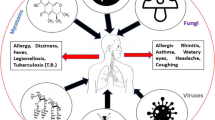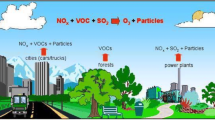Abstract
Indoor environment is important to human health and well-being. The aim of the present study was to investigate the relationships among indoor cleaning, rubbish disposal and human health and well-being in a national and population-based setting. Data was retrieved from the Japanese General Social Survey, 2010. Information on demographics, lifestyle factors, frequency of indoor cleaning and rubbish disposal and self-reported health and well-being in Japanese adults was obtained by household interview. Analysis included chi-square test, logistic and multi-nominal regression modelling. Of 5003 Japanese adults (aged 20–89) included in the study cohort, 11.4 % (n = 566) never cleaned their living place, 39.1 % had occasional cleaning and 49.6 % had frequent cleaning. Moreover, 17.5 % (n = 869) never disposed rubbish, 24.9 % had occasional rubbish disposal and 57.6 % had frequent rubbish disposal. 15.0 % of Japanese adults claimed poor self-rated health, and 5.9 % reported unhappiness. Compared to people who frequently cleaned the living place, others tended to report poor self-rated health condition (relative risk ratios (RRR) 1.52, 95 % confidence intervals (CI) 1.24–1.85, P < 0.001) and unhappiness (RRR 1.47, 95 % CI 1.10–1.95, P < 0.001). The combined effects of never cleaning and never rubbish disposal significantly impacted on poor self-rated health (RRR 2.61, 95 % CI 1.40–4.88, P = 0.003) and unhappiness (RRR 2.72, 95 % CI 1.72–4.30, P < 0.001). Only half of the Japanese population frequently cleaned their living place and disposed rubbish. Less or never cleaning and rubbish disposal were associated with poor self-rated health, subjective happiness and potentially other health conditions. Public education on maintaining clean indoor environments to optimise psychological well-being in addition to the known physical health would be suggested.
Similar content being viewed by others
References
Amato F, Nava S, Lucarelli F, Querol X, Alastuey A, Baldadano JM, Pandolfi M (2010) A comprehensive assessment of PM emissions from paved roads: real-world emission factors and intense street cleaning trials. Sci Total Environ 408:4309–4318
Barnes CS, Kennedy K, Johnson L, Forrest E, Gard L, Pacheco F, Amado M, Portnoy J (2008) Use of dilute sodium hypochlorite spray and home cleaning to reduce indoor allergen levels and improve asthma health parameters. Ann Allergy Asthma Immunol 101(5):551–2
Ernst M, Corless J, Greene-Roesel R. (2003) Clearing the air: public health threats from cars and heavy duty vehicles—why we need to protect federal clean air laws. Surface Transportation Policy Project
Evans GW, Kantrowitz E (2002) Socioeconomic status and health: the potential role of environmental risk exposure. Annu Rev Public Health 23:303–31
Fisk WJ, Rosenfeld AH (1997) Estimates of improved productivity and health from better indoor environments. Indoor Air 7:158.172
Franke DL, Cole EC, Leese KE, Foarde KK, Berry MA (1997) Cleaning for improved indoor air quality: an initial assessment of effectiveness. Indoor Air 7:41–54
Polivka BJ, Lovell M, Smith BA (1998) A qualitative assessment of inner city elementary school children’s perceptions of their neighborhood. Public Health Nurs 15:171–179
Poulsen OM, Breum NO, Ebbehøj N, Hansen AM, Ivens UI, van Lelieveld D, Malmros P, Matthiasen L, Nielsen BH, Nielsen EM, Schibyea B, Skova T, Stenbaeka EI, Wilkinsa KC (1995) Sorting and recycling of domestic waste review of occupational health problems and their possible causes. Sci Total Environ 168:33–56
Shiue I (2014a) Neighborhood epidemiological monitoring and adult mental health: European Quality of Life Survey, 2007–2012. Environ Sci Pollut Res Int. doi:10.1007/s11356-014-3818-3
Shiue I (2014b) Prevalence and psychiatric correlates of neighbourhood satisfaction and its impact on adolescent behaviours: UK understanding society cohort, 2011–2012. Environ Res 134C:390–395
Shiue I, Bramley G (2014) Environmental chemicals mediated the effect of old housing on adult health problems: US NHANES, 2009–2010. Environ Sci Pollut Res Int
Shiue I (2015) Indoor mildew odour in old housing was associated with adult allergic symptoms, asthma, chronic bronchitis, vision, sleep and self-rated health: USA NHANES, 2005–2006. Environ Sci Pollut Res Int 22:14234–40
Skulberg KR, Skyberg K, Kruse K, Eduard W, Djupesland P, Levy F, Kjuus H (2004) The effect of cleaning on dust and the health of office workers: an intervention study. Epidemiology 15(1):71–8
Zock J-P, Kogevinas M, Sunyer J, Almar E, Muniozguren N, Payo F, Sanchez JL, Anto JM (2001) Asthma risk, cleaning activities and use of specific cleaning products among Spanish indoor cleaners. Scand J Work Environ Health 27:76–81
Author information
Authors and Affiliations
Corresponding author
Ethics declarations
Conflict of interest
The author declares that she has no competing interests.
Additional information
Responsible editor: Philippe Garrigues
Rights and permissions
About this article
Cite this article
Shiue, I. Less indoor cleaning is associated with poor health and unhappiness in adults: Japanese General Social Survey, 2010. Environ Sci Pollut Res 22, 20312–20315 (2015). https://doi.org/10.1007/s11356-015-5643-8
Received:
Accepted:
Published:
Issue Date:
DOI: https://doi.org/10.1007/s11356-015-5643-8




